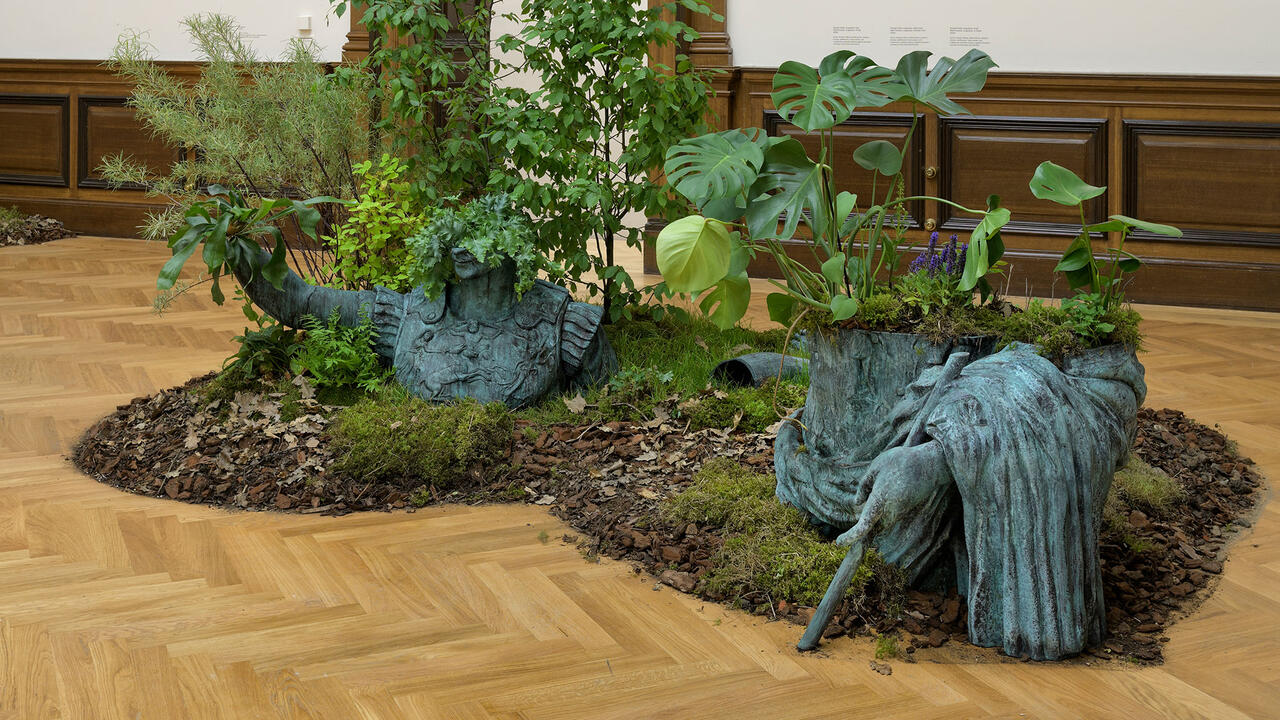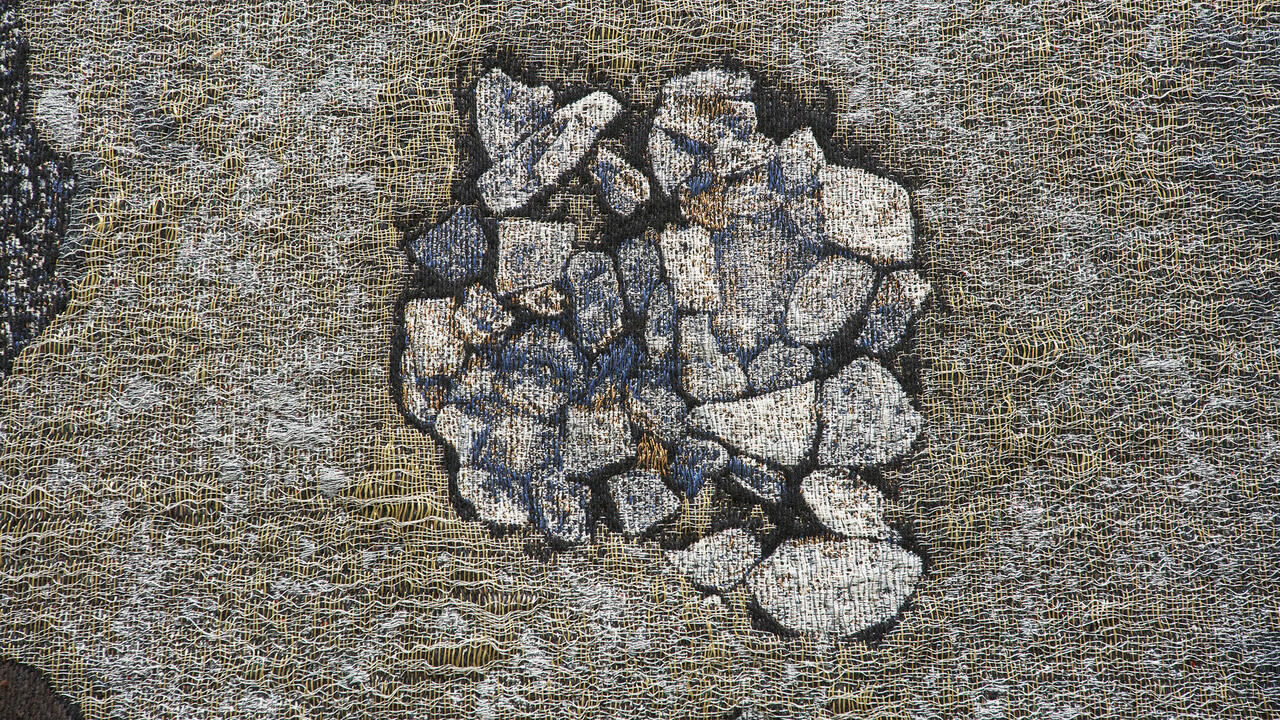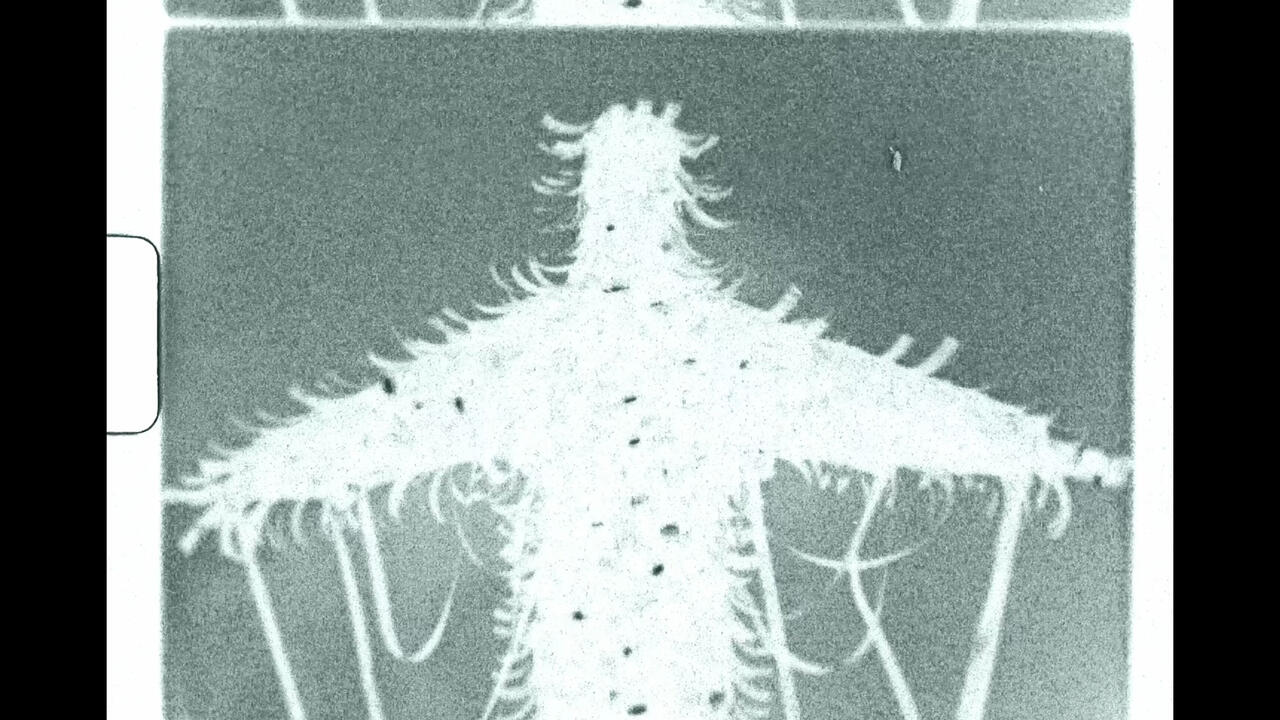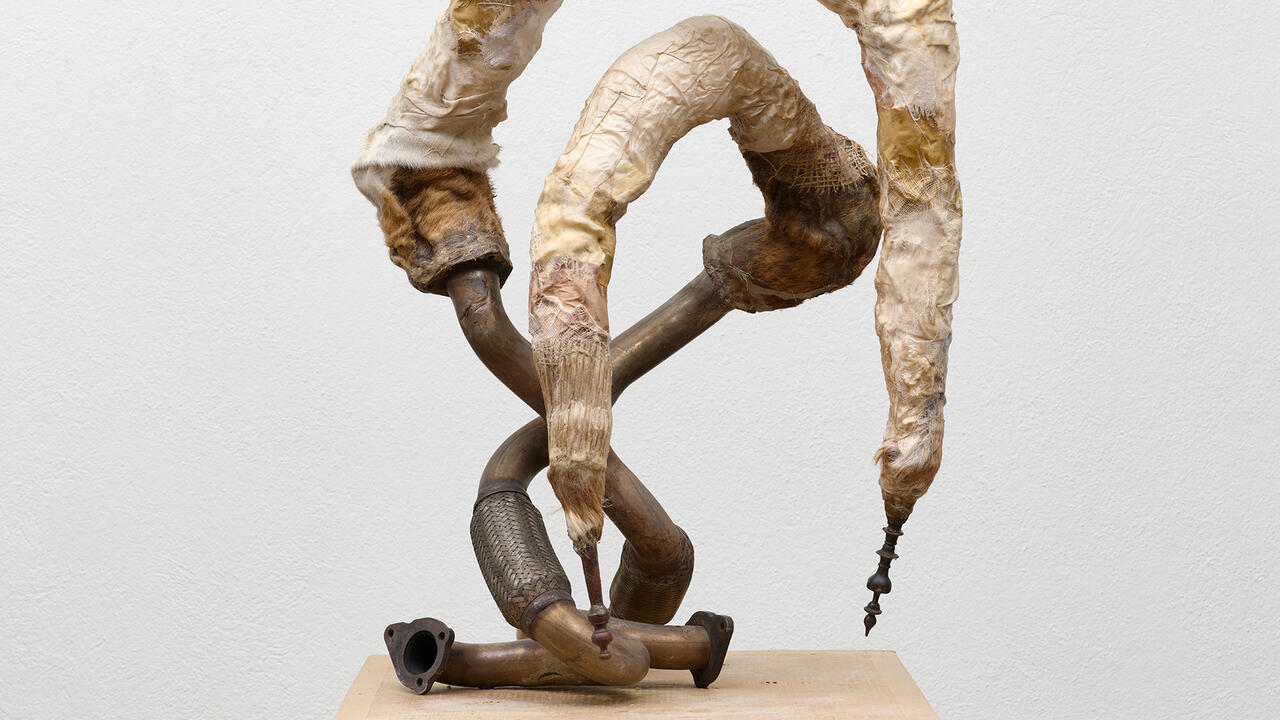Must-See: ‘The Time is Always Now’ Urges Us to Reframe the Black Figure
Ekow Eshun's expansive group exhibition at The Box, Plymouth, tackles the resistance and creativity of Black figuration
Ekow Eshun's expansive group exhibition at The Box, Plymouth, tackles the resistance and creativity of Black figuration

This review is part of a series of Must-See shows, in which a writer delivers a snapshot of a current exhibition
Taking its title from the essay ‘Nobody Knows My Name’ (1961) by James Baldwin, a writer who frequently challenged the US’s failure to rectify racial segregation, Ekow Eshun’s exhibition ‘The Time Is Always Now: Artists Reframe the Black Figure’ takes up the themes of social justice and cultural transformation. Travelling from the National Portrait Gallery, London, the show is currently spread across The Box’s gallery spaces and urges us to consider the objectification of the Black body within the UK’s colonial economies and archives. It confronts the complexities of ‘Blackness’ and the experience of racial violence by acknowledging the resistance and creativity of Black cultures through the work of 22 contemporary Black artists.

Nothing prepares you for Thomas J Price’s As Sounds Turn to Noise (2023), an arresting, larger-than-life embodiment of Black female subjectivity cast in bronze. The work disrupts the classical aesthetic of the ethereal, marble goddess and offers instead the striking presence of a young adult who seizes the space as her own; signalling her individuality, contemporaneity and place within the African diaspora through her braids, Lycra-clad thighs and trainers.

Elsewhere, Njideka Akunyili Crosby’s collage of multi-generational motherhood, Still You Bloom in This Land of No Gardens (2021), and Toyin Ojih Odutola’s portrait depicting an imagined Black aristocracy, The Marchioness (2016), forces us to rethink who should be memorialized in public art and to question how modern art has engaged with the history and legacies of race, freedom and transatlantic slavery. Many of the subjects sleep before us or avoid our gaze, as in Wangechi Mutu’s This second Dreamer (2017); nevertheless, we witness their inner and external worlds, their dreams, deaths and gatherings, their experiences of fear and self-perception – what W.E.B. Du Bois termed ‘double consciousness’, a sense of looking at the self as seen by others (as other, object, slave, Black). Indefinable and constructed notions of Blackness are explored and asserted via forceful renderings of skin, vanishing, physicality and blurring.
Freedom, vitality and creativity pulse throughout this extraordinary exhibition. Hosted in Plymouth, from whose port the first British slave trader sailed in 1562, ‘The Time Is Always Now’ reasserts art’s power to instigate change.
‘The Time is Always Now: Artists Reframe the Black Figure’ is on view at The Box, Plymouth, until 29 September
Main image: Njideka Akunyili Crosby, Still You Bloom in This Land of No Gardens, 2021, acrylic, transfers, colour pencil and collage on paper, 2.4 × 2.7 m. Courtesy: the artist, Victoria Mirovand David Zwirner; photograph: Kerry McFate






















